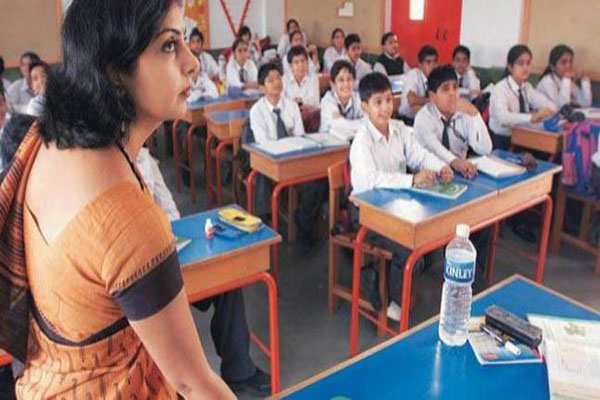Reshma Ravishanker
Most stakeholders interviewed while designing the National Education Policy’s (NEP) draft position papers believed that teachers do not walk the talk with respect to value education.
As a baseline for drafting a paper on ‘Value education’, a survey was conducted to collect inputs from policy makers, teachers, parents and students.
When asked, 87% policy makers and 71% parents felt that teachers do not live the values they teach whereas teachers were divided on this question. While 32% feel they preach what they practice, 38% felt the need to improve.
To understand the views of various stakeholders on value education in Karnataka, four sets of questionnaires were designed to collect inputs from policy makers, teachers, parents and students. Around 660 teachers, 950 Students, 960 Parents and 32 members of DIET/CTE participated in the online survey.
NEP 2020 proposes to introduce value education in a streamlined manner across age groups. “The National Education Policy 2020 further states the aim of education will not only be cognitive development, but also building character and creating holistic and well-rounded individuals equipped with the key 21st century skills. Students will be taught at a young age the importance of ‘doing what’s right,’ and will be given a logical framework for making ethical decisions,” the draft paper states.
The draft proposes a combination of direct, integrated, and whole-school approaches of which a direct approach would be adopted in two periods per week.
At the foundational age (3-8 years), teaching communication skills, good manners, hygiene is recommended while among those in the preparatory stage (age 8-11) universal values of love, empathy, caring, sharing and compassion for harmonious and humane relationships are among concepts proposed. In middle school, spirit of healthy competition, informed aversion to various forms of violence like communalism and discrimination on the basis of gender, caste, class, and religion and inculcating secular democratic attitude is recommended. In secondary school, students will learn rational thinking, broader perspectives of judiciary, self-discipline, and responding to emotions.
Other highlights of draft paper:
No bag days: For 10 days- Students will intern with local vocational experts such as carpenters, gardeners, potters, artists etc, from grade 6th onwards to be called ‘Seva Diwas’ – fields day to practice values by doing work in the society.
Holistic report card: To consider every aspect of the student’s all-round development, academic and non-academic activities including the modification of behaviour.
Moral science mentor: Any teacher with sound knowledge of morality, right conduct and having a positive outlook towards life. Mentors must accept the students as they are without any prejudice or personal bias.
Teacher training: 4 years Integrated Teacher Education Program (ITEP)- Value education programme included at all levels.
Also read: Inherent contradiction of NEP 2020
